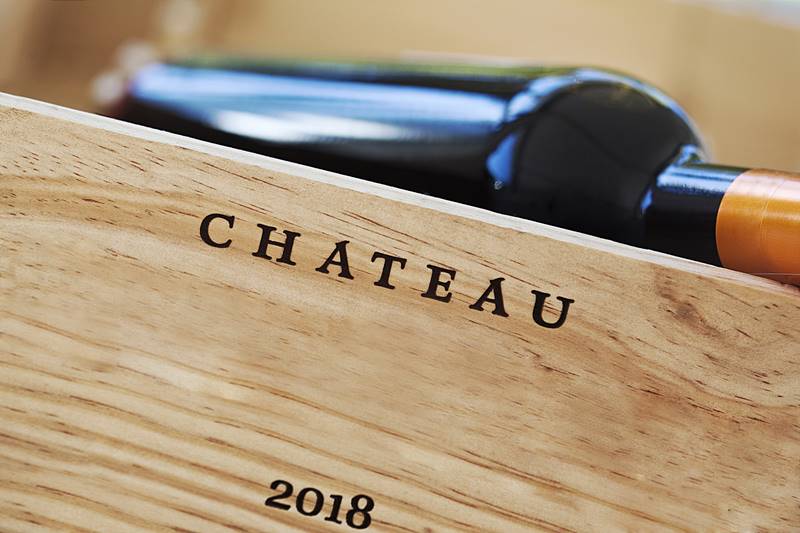Bordeaux Wine War: Castel vs. Winemakers in Bitter Dispute
Castel Sues Protesters, Quits Industry Groups
2024-06-28

The Bordeaux wine region, long celebrated for its exquisite vintages and storied heritage, is now the stage for a heated confrontation between local wine titan Castel, the viticultural action group Viti 33, and local unions. The conflict erupted following failed negotiations over the aftermath of high-profile protests in late February, which saw heaps of manure, silage, and plastic waste dumped outside Castel's main operational center in Blanquefort, north of Bordeaux city. These demonstrations were a bold statement by frustrated winemakers who feel squeezed by rising costs, perceived governmental inertia, and unfair practices by major grape buyers and wine merchants (négociants).
The timing of these protests coincided with the Paris Agricultural Show, amplifying the grievances of viticulturists fed up with what they see as exploitative pricing and lack of support. This discontent was further stoked by the recent conviction of two wine merchants for price manipulation. Such protests, marked by the symbolic dumping of manure and silage bales, are entrenched in the French agricultural tradition, serving as a potent expression of dissent.
Castel's response has been firm, seeking compensation for clean-up costs totaling €68,920, economic losses of €11,608 due to blocked site access, and €20,000 for reputational damage. The company has initiated legal proceedings against the protest orchestrators: the agricultural unions FDSEA (the local branch of the Federation of Agricultural Unions), JA (Young Farmers), and the local activist group Viti 33.
Despite the breakdown in negotiations, Castel has refrained from public commentary on the matter, instead issuing an open letter on its website. Addressed to the protesters and the broader Bordeaux wine industry, Castel denounced the February actions as crossing a line and questioned whether the minority of "disrespectful and virulent" viticulturists represented the entire community. The company also declared a temporary withdrawal from all Bordeaux wine industry institutions to underscore its stance.
Conversely, Castel's adversaries have been vocal. Viti 33 has acknowledged and regretted the protest methods but has also condemned Castel's perceived arrogance. Jean-Samuel Eynard, head of the national FDSEA (FNSEA), questioned Castel's motives, hinting at provocation or contempt towards struggling viticulturists. Viti 33, through a detailed social media message, vowed to use any legal proceedings as a platform to highlight regional injustices, emphasizing their readiness to issue a press release suggesting that industry disputes tarnish Bordeaux's image. Mediators, however, argued that any assault on the négociants' reputation would inadvertently harm Bordeaux's overall standing.
The Bordeaux Wine Trade Council (CIVB) has been striving to mediate since the protests began in early 2024, though it has faced its own share of criticism for its stance. This ongoing strife reflects deeper tensions within the region, with winemakers feeling neglected and large enterprises endeavoring to safeguard their interests.
A Bordeaux court was scheduled to hear Castel's case on June 4th, but no information has been disclosed regarding the proceedings. This legal battle is emblematic of broader issues within Bordeaux, revealing fractures between different sectors of the wine industry and highlighting the challenges faced by smaller viticulturists in an increasingly commercialized landscape.
As this conflict unfolds, the implications for Bordeaux's reputation, both domestically and internationally, are significant. The region's famed wine industry is grappling with internal strife at a time when unity and collaboration are more crucial than ever. How these tensions resolve will likely influence the future dynamics of Bordeaux's wine community, impacting everything from grape pricing to global market strategies.
The outcome of this dispute remains uncertain, but one thing is clear: Bordeaux is at a crossroads. The decisions made in the coming months will shape not just the immediate future of its wine industry but also its legacy as a global epicenter of vinicultural excellence. The world watches as Bordeaux's stakeholders navigate this challenging period, hoping for a resolution that honors the region's rich heritage while addressing the pressing concerns of its most vulnerable members.
Founded in 2007, Vinetur® is a registered trademark of VGSC S.L. with a long history in the wine industry.
VGSC, S.L. with VAT number B70255591 is a spanish company legally registered in the Commercial Register of the city of Santiago de Compostela, with registration number: Bulletin 181, Reference 356049 in Volume 13, Page 107, Section 6, Sheet 45028, Entry 2.
Email: [email protected]
Headquarters and offices located in Vilagarcia de Arousa, Spain.